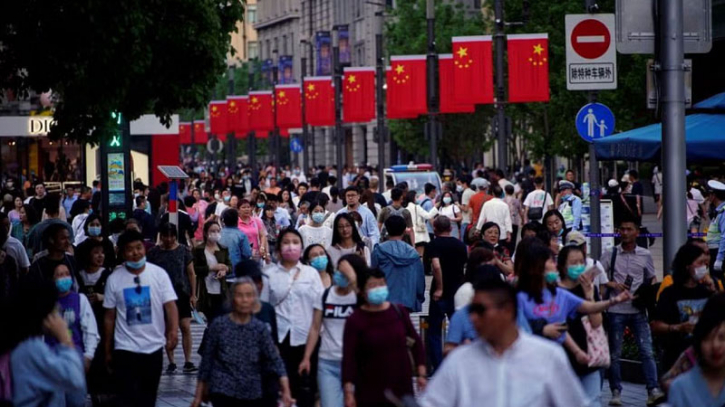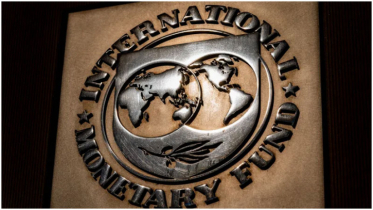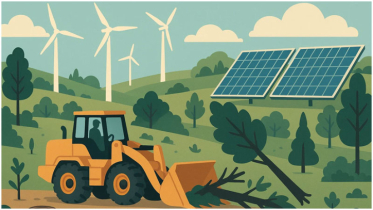China's slowing growth, deflation, and support for private firms

For several years, China has been one of the foremost exponents of economic growth while also being the second-largest economy in the world due to its large population. According to World Bank data, China is the world's leading exporter with exports amounting to almost $3.7 trillion in 2022. But it is also the second-largest holder of US debt, owing around $850 billion, second only to Japan. However, latest economic reports indicate that China is not experiencing the same level of prosperity as it used to.
In The Wall Street Journal, Walter Russel Mead explained how, last June, one of China's best aspects, exports, fell at a double-digit pace of 12.4 percent. In addition, the country is experiencing record levels of youth unemployment, which can sound contradictory when several manufacturers are reporting labour shortages. And even though the central government still has substantial sums of money to counter these problems, some experts are predicting a dramatic market decline.
Having said that, China knows that, in the long run, its slowing growth may become an issue, raising concerns about some internal issues that the country is facing. There are many internal factors that can create political instability, a fact that would not help China's growth at all. The Chinese population is also getting older, the younger generations are experiencing frustration, and the huge gaps between richer and poorer areas can definitely cause turmoil when growth is slowing down.
Another factor worth mentioning, that may hit China soon, is deflation. With inflation being flat in June after the lack of growth, there is a possibility of deflation in the medium run. In fact, some Chinese sectors, such as manufacturing, are already experiencing this due to low internal demand. The Chinese economy had not fully recovered from the consequences of the 2020 pandemic when Western central banks started to raise interest rates. As a consequence, people found themselves in a disadvantaged situation in terms of spending.
In order to overcome this situation, the Chinese government has made a surprising concession for many people. By mid-July, China announced that the country will implement several policy measures to support private businesses and accelerate the nation's recovery after the pandemic. The state news agency, Xinhua, expressed that China will do its best to create a market-oriented, first-class business environment, and that its private sector will promote Chinese-style modernisation and the construction of a socialist modern power. However, the actions that China plans to carry out are more similar to those of Western capitalist countries. Among all the measures, it is worth mentioning that they are going to advocate for the protection of the property rights of private firms and entrepreneurs, and that steps will be taken to ensure fair market competition by breaking down barriers to market entry. Besides that, China plans to create a "traffic light" system to make it clearer in which areas private investors will be able to invest, as well as encourage some private companies to issue more debt in the form of technology innovation bonds. This will allow companies to reach levels that they would be unable to reach without external financing support.
The Chinese population is also getting older, the younger generations are experiencing frustration, and the huge gaps between richer and poorer areas can definitely cause turmoil when growth is slowing down.
China will also offer support for so-called platform companies to be determinants when it comes to job creation and international competition. The actions will encourage private enterprises to maximise investment in certain areas such as power generation, storage, and industrial internet. Following the example of Western countries, China will also invest heavily in research and development, which will encourage businesses to expand their infrastructure and facilities.
Finally, the Chinese government expressed its desire to refute erroneous statements and practices that may hurt private companies, saying that it will address any problems they are facing as quickly as possible. All these actions together are expected to boost China's economy, just as it was growing in the years before the Covid-19 pandemic.
Given that China is governed by the Chinese Communist Party, it may be surprising to some that they are taking the actions mentioned above. But perhaps it's high time that the country, which has historically differentiated itself from the free economies of the western world, takes steps that its people can benefit from. When these measures are implemented, companies will be able to grow, and their benefits will be reflected in the nation. The country's population can also expect a better salary, which will allow them to spend more. This can reactivate the Chinese economy, which, based on data, is currently stagnant. The country is facing a serious problem of no growth and potential deflation. Against this backdrop, China's proposed policy measures seem like a smart move. On the flip side, if the results of implementing these measures are as expected, it would mean that the model that China has been employing all these years lacked efficiency. It seems that the coronavirus changed the world in more ways than we had expected.
Source: The Daily Star
.png)




